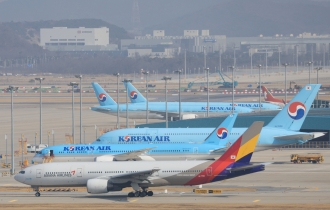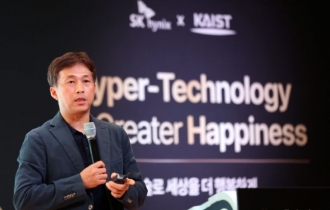Sugentech develops diagnostics tool for early detection of Alzheimer’s
[THE INVESTOR] Sugentech said on Oct. 11 it plans to launch a non-invasive testing system that will enable the early detection of Alzheimer’s disease using snot by 2022.
The Korean biotech firm has discovered a biomarker for dementia derived from mucus which has 80 percent accuracy. By adding two more biomarkers, the rate will further increase to over 90 percent, the company said.

The new tool is expected to offer an affordable option of around between 10,000 won (US$8.84) and 20,000 won to replace invasive or expensive testing methods such as cerebrospinal fluid test, cognitive assessment and Positron Emission computed Tomography.
“The prime idea is that amyloid-beta, which is known as a key driver of Alzheimer’s symptoms, leaks out from the brain into nasal mucosa through mucus,” Sugentech CEO Sohn Mi-jin said during a forum co-hosted by Samsung Securities and DAYLI Partners.
Alzheimer’s disease is caused by the gradual loss of nerve functions which are blamed on the accumulation of two proteins -- beta-amyloid and tau.
“As the therapeutics of Alzheimer’s disease are still limited to symptomic treatment of cognitive function, early diagnosis is a more effective way to treat it,” Sohn said.
Some 44 million people suffer from dementia globally, including 540,000 patients in Korea.
The Daejeon-based in-vitro diagnostic company is also working on a blood-based tuberculosis test kit to push the boundaries of the conventional sputum culture which takes about a week until the results become available. Another shortcoming is the difficulty of getting enough material in a sputum sample for testing which can be resolved by using blood. The kit will be unveiled next year here.
According to a report by the World Health Organization, tuberculosis is the world’s leading infectious disease killer and its latest figures show it kills more than 4,000 people daily.
“We believe that the product will met the market’s unmet demand for sampling. We will bring it to the global market and could take part in the WHO’s tender to offer it to underdeveloped countries,” she said.
By Park Han-na (hnpark@heraldcorp.com)
EDITOR'S PICKS
- Seoul shares rattled by Israeli attack on Iran; Kospi dips to nearly 11-week low
- S-Oil donates W560m to support firefighters
- LG CNS teams up with Yonsei University to nurture AI specialists
- Polestar 4 to make Korean debut in June
- S. Korea pledges W23tr venture capital fund for green investment at G20 meeting
- Sungsimdang outperforms bakery giants to log sales over W100b
- France rejects opening Paris flight routes to T'way Air, deals blow to Korean Air merger
- SK hynix chief underscores chip cooperation between Korea, US















